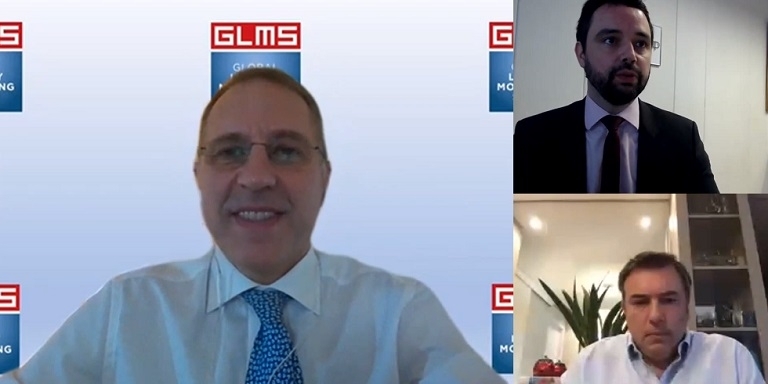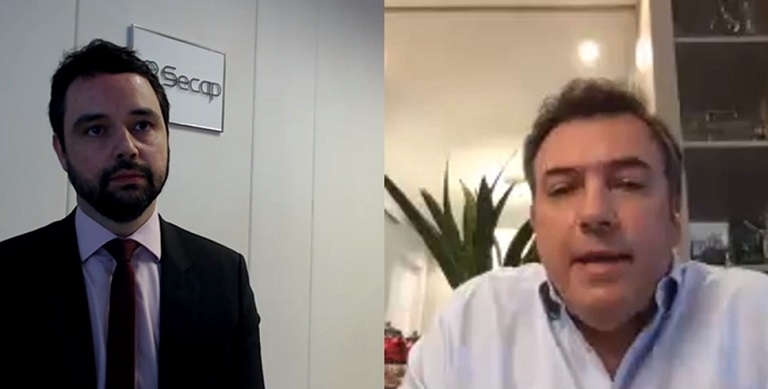

"Since 2019, we have been discussing with the market players about adjustments to the sports betting law (13,756). Throughout this period, Secap discussed the dynamics of the activity with the market and other regulatory bodies. It is a great source of revenue for important public policies, but we knew that the turnover tax base was not the most appropriate. We observed in other parts of the world that the GGR is the model adopted and the most correct one. We believe that this recent change goes in the direction of the best practices observed in the rest of the world," said Gustavo Guimarães.
The secretary reminded that a few weeks ago Secap released the reports about the Brazilian lottery market and commercial promotions, and it is worth "highlighting the transfer, in the first four months of the year, despite the difficulties of the pandemic, of R$2.7 billion to social destinations, an increase of 13% over 2020. I see the lotteries area at Secap as a sector that can contribute a lot to tax collection, in addition to generating jobs and income for society.”
Very aware of the role of the federal government in defining transparent policies that offer legal certainty to those interested in operating in the Brazilian market, Guimarães said that the area of lotteries and sports betting has much to contribute to the government itself and to society in the future.
As the whole market is waiting for a quick regulation of sports betting, Secap's head assured that although it may happen until December 2022, he does not want to wait that long for the implementation of sports betting operations. He recalled that next year's football World Cup will generate a lot of business and it is important that the regulation happens sooner to ensure the full potential of the world's main football championship offers attractions. "We are working on all fronts to privatize the sports betting sector as quickly as possible," he said.
Ludovico Calvi, chairman of the Executive Committee of the Global Lottery Monitoring System and a specialist in the lottery and betting areas for over 30 years, presented a report on the world lottery panorama and highlighted that the change in the way sports betting is taxed will be very positive for Brazil.

He made an interesting projection about the values that may represent such a change. According to him, Brazil may have a turnover of more than R$20 billion in 2026, with a GGR of R$4 billion. "In the world, the market is expected to reach US$ 586 billion, between physical and online operations, with lotteries and betting accounting for about 50% of this market. Specifically in the online channel the growth of betting has been exponential. By 2020, they represented 50% of the volume, compared to 9% in physical channels."
For Calvi, the great difficulty that a government has in regulating the activity, "is to find a balance between the needs of the market and the social needs of a country. To create a competitive market, it is important to attract interested parties to invest in the country, create jobs, and help the economy. On the other hand, there has to be a safeguard for tax revenues and a law that reinforces responsible gambling and protects bettors against illegal gambling," he defines.
Ricardo Magri, sports betting expert and Commercial Director of Eightroom, explained how sports betting works in various environments, such as the platform, odds, markets, matched bets, and affiliation, among other topics, and highlighted the importance of excellent customer service.

Both Magri and Calvi stated that the regulated market has all the conditions to reduce illegal operation. "A regulatory framework with the competence of Secap's professionals," in their assessment, is able to offer a favorable environment to protect the gambler and create mechanisms to curb illegal gambling and practices not compatible with a well-regulated market.
For Magri, the regulation will be fundamental to keep illegal operators out of the market. "With regulation on a competitive basis, operators will migrate to the formal market," both in the area of sports betting and "other types of games, such as casinos, which I also advocate," he said.
According to Eightroom's Commercial Director, "a positive regulatory agenda for Brazil and a strong and sustainable regulatory framework is important. And Secap has human resources with experience for this mission."
Magri's comment on the regulation of other verticals allowed the Secap Secretary, Gustavo Guimarães, at the end of the webinar, to commit to holding further meetings, including for the discussion of models for the legalization of casinos.
Source: GMB